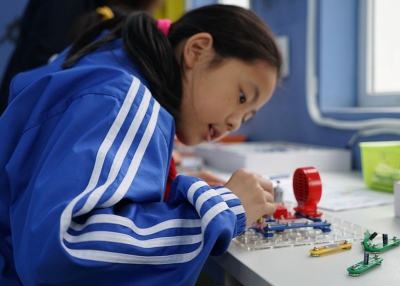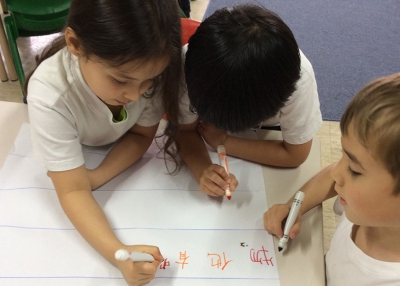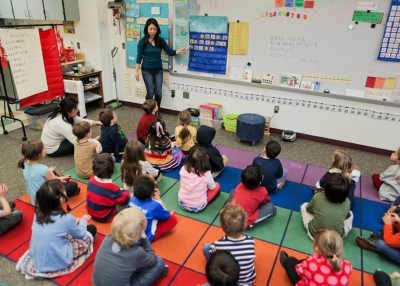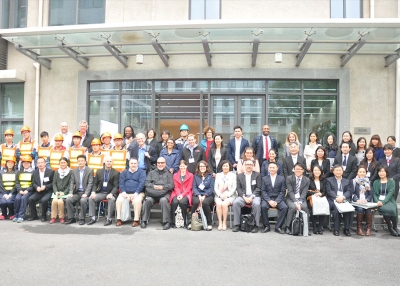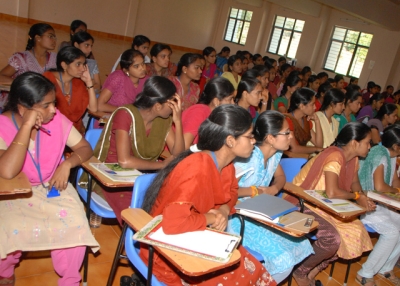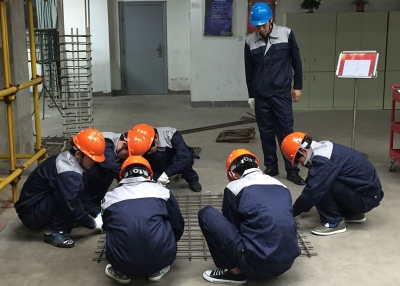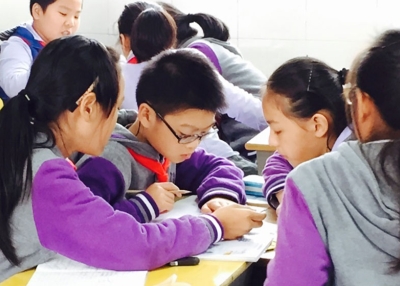Building Education Systems to Support the Development of 21st Century Competencies
International Strategies

Asia Society's Center for Global Education convened a working group of leaders from six cities in Asia and in North America to discuss approaches to building education systems that support the development of 21st century competencies. Christina Russell, managing director at Policy Studies Associates, discusses common themes that emerged from the working group meeting and in conversations with the system leaders.
by Christina Russell
Educators around the world are rethinking the ways in which they prepare students for learning, work, and citizenship in a global society that requires individuals to effectively engage with each other, creatively approach tasks, and be lifelong learners. The skills required for success in school, careers, and life can be collectively referred to as 21st century competencies, although the specific competencies emphasized vary based on local contexts and values.
Leaders from Denver, Hiroshima, New York City, Seattle, Seoul, and Singapore gathered in Shanghai to share their approaches for creating systems that support students with developing the competencies they need to succeed and ideas for strengthening the reach and impact of their work. During this meeting, which took place in November 2015, it became clear that despite differences in the cultural and policy contexts across these six cities, there were also many common threads in how leaders approached the effort to building and sustaining a system-wide commitment to helping youth develop, practice, and master these competencies.
Why System Building?
Programs and initiatives that support the development of 21st century competencies have long been implemented in both schools and in nonformal learning settings. However, these programs have not been systematically offered as part of all students' educational experiences: programs have fallen in the realm of special leadership programs, or targeted intervention programs for specific populations.
In recent years, this landscape has begun to change. City systems both internationally and in the United States have taken steps to develop policies that ensure supports for all students in gaining 21st century competencies as part of a comprehensive learning experience. For example, Singapore introduced their Framework for 21st Century Competencies and Student Outcomes grounded in a national vision for integrating these competencies into learning. Denver Public Schools adopted "Whole Child" growth as a goal in its five-year strategic plan.
In addition, the responsibility for 21st competencies is increasingly shared across both the formal education system (the traditional school day) and the nonformal system (such as extracurricular or out-of-school time programs). Policy change and cross-sector alignment are both important steps in building sustainable systems, as they make 21st century competencies a more visible priority than when the competencies are promoted through individual programs. When multiple sectors are involved, and when system-level policies are introduced, the system becomes less siloed, more resources allocated, and sustainability more assured. So, what can be learned from the experiences of these international systems about what it takes to build a system that supports 21st century competencies development in youth?
Steps to Building Systems for 21st Century Competencies
The experiences of the six cities in Asia Society's working group highlight that there is no one-size-fits-all sequence of steps to developing and sustaining a system-wide approach that supports the development of 21st century competencies for all students. But one lesson that stands out is the importance of ensuring that the rationale, partnerships, and resources that are at the foundation of the system reflect the local policy and cultural context.
Three key stages can guide education systems as they embark on the development of sustainable system-wide approaches that reflect the local context and priorities for 21st century competencies:
1. Articulate the need for 21st century competencies and new approaches to developing these competencies in the system. Ground the messaging in the local conversation to reflect the priorities and concerns of the community about the development of youth beyond academic content knowledge. Ask:
- What 21st century competencies are most valued in the community? How do we know?
- Why are these competencies important and to what sector?
- What groups are currently represented in discussions about what competencies are most important?
- Are any groups missing who should be included in system development?
2. Identify how different sectors of the system can strategically contribute to supporting the development of these 21st century competencies and how available resources can be aligned and coordinated across the system. For example, what is the role of the formal education system in schools and classrooms? What is the role of nonformal education settings in extracurricular programs, summer programs, or other out-of-school time supports? How do the opportunities connect across settings to provide comprehensive and scaffolded experiences for students to apply their learning? Consider:
- What strategies are currently being used in the community to develop 21st century competencies? What programs currently exist?
- How can those strategies be brought together to align and meet the needs of the all students?
- What partnerships across sectors can be formed to offer services to support the development of 21st century competencies?
- What is the capacity of formal and nonformal educators to help youth develop 21st century competencies? What additional supports are needed?
- Whose role is it to support this capacity development? What professional development and other resources are available to support this work within the school system and among community organizations, technical assistance providers, universities, or others?
3. Determine how the success of 21st century competency development can be demonstrated, reflecting the priorities of the community. Determine:
- Is a formal measure of success required? How will success be communicated, and to whom?
- What is an appropriate measure of success? Should success be measured at a system, school, or student level?
- If an assessment is implemented, will it be used to identify student needs, for accountability, or for program improvement, or a combination?
- How long after a system is in place is it appropriate to measure success?
The six cities in Asia Society's working group were engaging stakeholders from across sectors in their communities in reflecting on these questions, developing frameworks and priorities for 21st century competencies, identifying partnerships and resources to support the maturing systems, and grappling with emerging questions of assessment and measurement. The full reflections of the six systems in Asia Society's working group on their current approaches and plans for next steps are summarized in a recently released paper, sponsored by the C.S. Mott Foundation.

